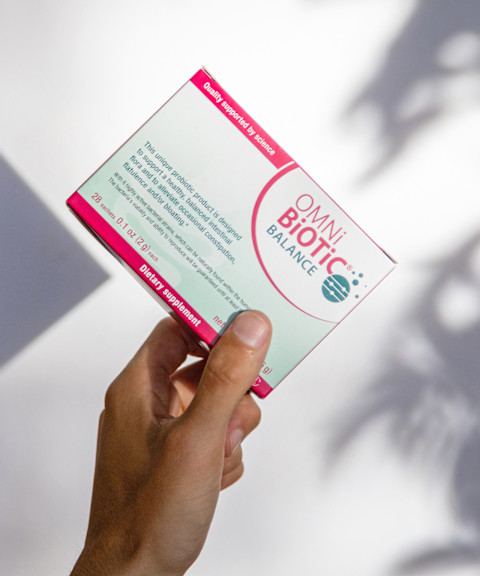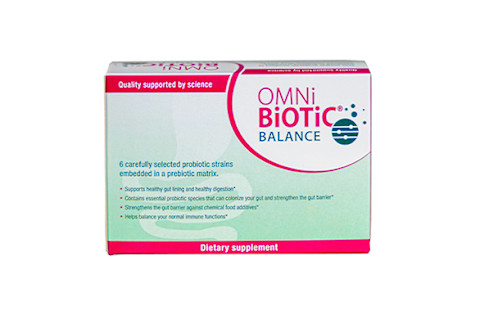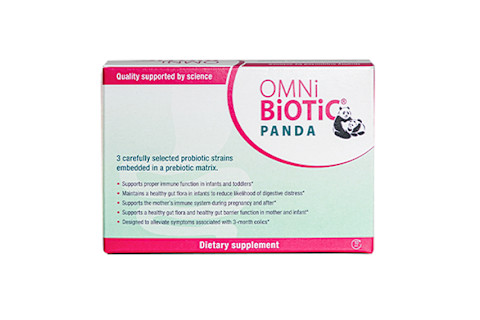Three Reasons Your Gut Is Critical To Immunity

In times of viral pandemic, strengthening our immune systems is on everyone's mind. And although we don't always think of a healthy gut as a requirement for a healthy immune system, we certainly should. You may be surprised to learn that more than 70% of the body's immune system is located in the gut1.
So, it makes complete sense to include good gut health practices in your immune-boosting regimen. Here, we will explore how the gut and immune system work together as well as some steps you can take to keep everything working as it should:
GALT: The most important immune function you never heard of.
Did you know that most of your immune system lives alongside your gut? The so-called gut-associated lymphoid tissue, or GALT, plays an important role in your ability to fight off infection. It is home to a vast number of immune cells including the T- and B-cells that identify pathogens and sound the alarm in the presence of harmful bacteria and viruses. But a healthy system is also able to recognize the fact that not all foreign substances are dangerous—otherwise, we could never enjoy a nice meal! Perhaps most interesting is the fact that the friendly bacteria in our guts play an active role in the immune system from early development through every phase of life. Without a healthy gut, our immune systems will fail us.
Gut microbes: Our immune system warriors.
Our guts are home to trillions of friendly bacteria and other microorganisms referred to as the gut microbiome. It is a thriving community that plays a vital role in many aspects of our overall health including robust immune function. It's amazing, and a little intimidating, to think we have at least as many microbes in our guts as human cells in our bodies. Makes you wonder who is running the show. Truth is, it's a group effort.
From the time we are in our mother's womb, healthful microbes are setting the stage for our immune systems to mature. In fact, early life imbalance has even been associated with an increased incidence of allergies and autoimmune disease later in life. Throughout our lives, gut microbes continue to play a vital role in our ability to fight pathogens by stimulating immune cell maturation, reducing inflammation, and balancing our immune responses for optimal health. As you can probably guess, disruptions in the gut microbiome can also negatively affect our ability to resist disease-causing viruses and bacteria. Such disruptions can result from many things including changes in diet, lifestyle, and the chronic stress levels that seem to be affecting all of us these days. Fortunately, there are some easy ways we can help our gut microbes do their job.
A strong immune system needs a healthy gut.
In addition to a whole food diet and a balanced lifestyle that allows you to get the exercise and relaxation you need, supplementation with a quality probiotic proven to support immune function is a no-brainer. Identifying the right formula can be challenging, but one company, in particular, makes it easy. Omni-Biotic® is a deeply studied probiotic brand on a mission to develop synergistic blends designed for specific needs: strong immunity among them. The Omni-Biotic Balance formula combines probiotic strains that have been tested for their functional significance: in this case, their ability to positively influence immune function.

The final formulation is then retested in clinical trials to prove the blend performs as expected: a level of quality not seen with many brands. And although Balance is ideal for daily immune support, Omni-Biotic also offers a targeted probiotic blend for mom and baby. Omni-Biotic PandA is designed specifically to support healthy fetal and infant immune system development and reduce the risk of developing allergies and eczema2. Additional benefits of PandA include improved gastrointestinal comfort for mom and a dramatically reduced risk of infant colic. Healthy and happy.
The bottom line.
A healthy immune system relies on a healthy gut. Taking small steps to keep your gut microbiome in balance can make all the difference—and a clinically proven probiotic is an important part.


